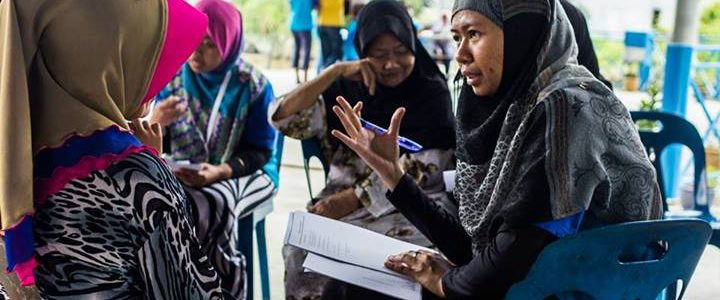What concrete actions can philanthropists, funders, and organisations take to support Malaysia’s nascent sector of non-profit and voluntary organisations?
BY XIANG MIN LIM
Malaysia’s Third Sector, which comprises non-profit organisations, voluntary organisations and social enterprises, is a nascent sector with 20% of over 80,000 registered organisations being less than ten years old. The sector faces unique challenges—from fragmentation to a lack of sector capacity and structural support overall.
APC organised a roundtable on 27 January 2022—the final in a series exploring the theme of capacity building—to further examine concrete ways for philanthropists, organisations, and funders to help strengthen the Third Sector in Malaysia. Specifically, the roundtable presented three action pathways to consider:
- Develop capacity-building as a focus area within one’s giving areas
- Join or expand existing initiatives for knowledge and tool sharing
- Build a cross-sector collective
Various case studies from Biji-Biji Initiative, Pemimpin GSL, Teach For Malaysia, Teach For All, and Yayasan Hasanah looked at ways their organisations are building capacity.
Biji-Biji Initiative started out as a social enterprise focused on the circular economy, but has since expanded into consultancy to accelerate fellow organisations, targeting six key capacity areas. Utilising an accelerator model to redirect funding in an efficient manner is a key practice when funding is limited, shared Rashvin Pal Singh, its Group CEO. Biji-Biji also measures impact and capacity through tools such as Theory of Change targets, pre- and post-surveys, and growth in communications, and shares these tools with others, helping to scale over 100 organisations since 2013.
Attracting, developing and retaining human capital are common challenges for non-profits. Teach for Malaysia (TfM), which organises Fellowship Programmes to develop leaders for the education sector in Malaysia, plays a key role in building a pipeline of talent for the sector, with many of its alumni contributing to the capacity of the Third Sector by launching their own initiatives or enterprises. TfM designs its programmes with alumni engagement in mind, shared CEO Soon Seng Chan, and alumni leave with a clear, shared vision, with shared professional and social connections.
Sharing perspectives from Teach For All, the global network of which Teach for Malaysia is a part, Edna Novak noted how global, guiding principles also help to align commitments across the network, while allowing for local incubation and leadership. This allows for consistent quality talent that builds on existing momentum and relies on each other to develop ideas and strengthen programmes.
Organisational support is particularly important during incubation—such was the case with Pemimpin Global School Leaders (GSL), which received significant support from the YTL Foundation—such as through a physical office space, back-end support and connections to key stakeholders. CEO Cheryl Ann Fernando shared that this enabled them to focus on developing the programme instead of being bogged down by fundraising and administration. The efforts paid off. Today, Pemimpin GSL has engaged 200 schools in 2 years and is expanding their programme beyond KL.
Dato’ Shahira Ahmed Bazari, Managing Director at Yayasan Hasanah, rounded off the discussion by sharing the foundation’s advocacy work. Yayasan Hasanah regularly convenes across various stakeholder groups in dialogue with policymakers and government, including a cross-sector disaster response network during the pandemic, amongst other government partnerships. Yayasan Hasanah also focuses on capacity development by providing curated training and specialised grant practices. Foundations and funders have a critical role to play in strengthening a nascent sector. They can facilitate knowledge sharing, provide necessary resources beyond funding, incorporate capacity building into grants, and support other organisations that build capacity, such as incubators and accelerators. YTL Foundation and Yayasan Hasanah are examples of such organisations that focus on scaling up local champions and last mile outreach to multiply impact.
With such support, Malaysia is well on its way to transform her nascent third sector into the strongest version of itself to better tackle the complex issues of today.
Image Credit: © USAID Asia, 2013. ASEAN Youth Volunteer Program 2013 licensed under CC BY-NC 2.0

